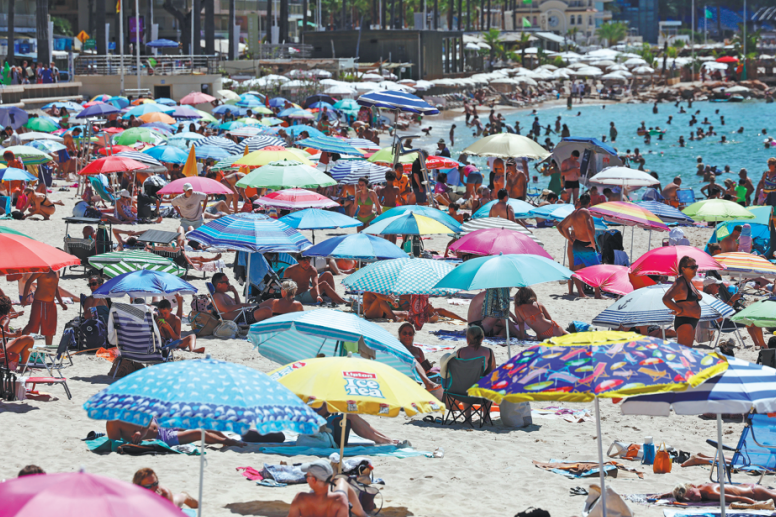Scientists issue warning after heat wave deaths spike


PARIS — A heat wave scorching Europe had barely subsided in early July when scientists published estimates that 2,300 people may have died across a dozen major cities during the extreme, climate-fueled episode.
The figure was supposed to "grab some attention" and sound a timely warning in the hope of avoiding more needless deaths, said Friederike Otto, one of the scientists involved in the research.
"We are still relatively early in the summer, so this will not have been the last heat wave. There is a lot that people and communities can do to save lives," Otto, a climate scientist at Imperial College London, told AFP.
Heat can claim tens of thousands of lives during European summers, but it usually takes months, even years, to count the cost of this "silent killer".
Otto and colleagues published their partial estimate just a week after temperatures peaked in western Europe.
While the underlying methods were not new, the scientists said it was the first study to link heat wave deaths to climate change so soon after the event in question.
Early mortality estimates could be misunderstood as official statistics, but "from a public health perspective, the benefits of providing timely evidence outweigh these risks", Raquel Nunes from the University of Warwick told AFP.
"This approach could have transformative potential for both public understanding and policy prioritization" of heat waves, said Nunes, an expert on global warming and health who was not involved in the study.
Science can show, with increasing speed and confidence, that human-caused climate change is making heat waves hotter and more frequent.
Unlike floods and fires, heat kills quietly, with prolonged exposure causing heat stroke, organ failure and death.
The sick and elderly are particularly vulnerable, but so are younger people exercising or toiling outdoors.
But every summer, heat kills and Otto — a pioneer in the field of attribution science — started wondering if the message was getting through.
'Big deal'
"We have done attribution studies of extreme weather events and attribution studies of heat waves for a decade … but as a society, we are not prepared for these heat waves," she said.
"People think it's 30(C) instead of 27, what's the big deal? And we know it's a big deal."
When the mercury started climbing in Europe earlier this summer, scientists tweaked their approach.
Joining forces, Imperial College London and the London School of Hygiene & Tropical Medicine chose to spotlight the lethality — not just the intensity — of the heat between June 23 and July 2.
Combining historic weather and published mortality data, they assessed that climate change made the heat wave between 1 and 4 degrees hotter across 12 cities, depending on location, and that 2,300 people had likely perished.
But in a notable first, they estimated that 65 percent of these deaths — around 1,500 people across cities including London, Paris and Athens — would not have occurred in a world without global warming.
"That's a much stronger message," said Otto.
"It brings it much closer to home what climate change actually means and makes it much more real and human than when you say this heat wave would have been two degrees colder."
The study was just a snapshot of the wider heat wave that hit western Europe during the hottest month of June on record and sent temperatures soaring to 46 C in Spain and Portugal.
The true toll was likely much higher, the authors said, noting that heat deaths are widely undercounted.
Agencies via Xinhua































